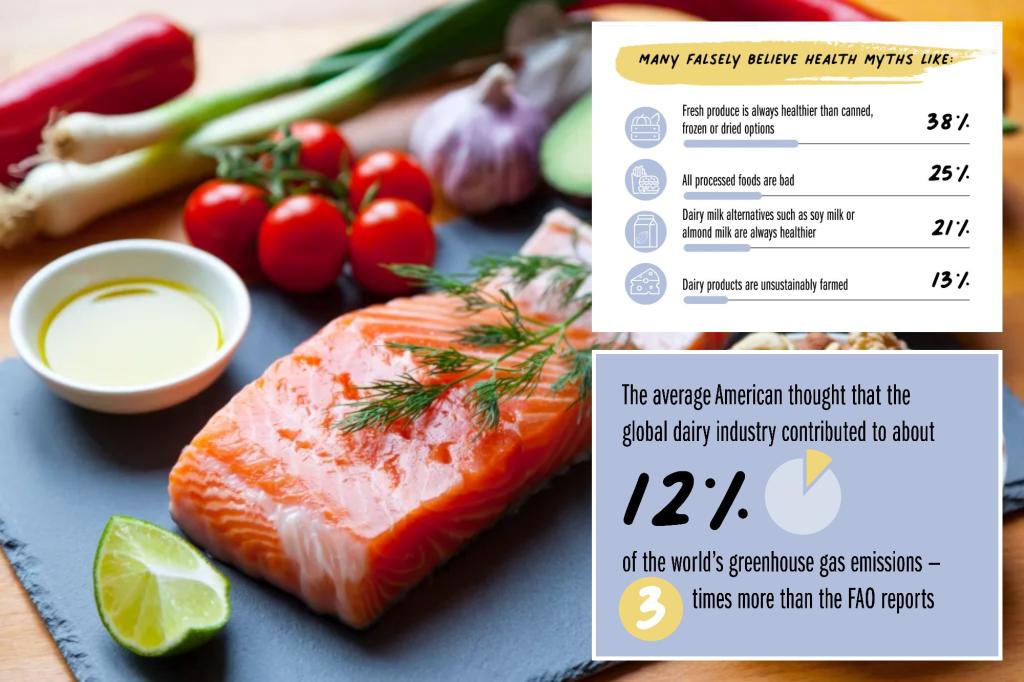A recent survey of 2,000 American adults conducted by Talker Research for Zeal Creamery revealed that 30% of Americans admit to buying healthy foods simply because they are trendy. Despite this trend, 65% of respondents rated their grocery shopping habits as at least somewhat healthy. However, when considering other factors, healthiness ranked fourth in terms of importance, with cost, quality, and personal preferences exceeding it. Many consumers are influenced by labels that use “healthwashing” terms, such as “multigrain,” “sugar-free,” and “organic,” with 82% of respondents opting for products with these types of labels.
The survey also found that Americans value terms like “high-in” and “free-range” when it comes to grocery shopping. Organic produce was identified as the top grocery category Americans would be willing to splurge on. While respondents were confident in their understanding of terms like “organic,” “sugar-free,” and “multigrain,” they were less sure about terms like “reduced,” “fortified with,” and “light” products. The abundance of healthwashing terms on food labels leaves nearly a third of those surveyed feeling overwhelmed while grocery shopping.
Misconceptions around food and health were also revealed in the survey findings. Many respondents inaccurately believed that fresh produce is always healthier than canned, frozen, or dried options. Additionally, a significant number of respondents mistakenly thought that dairy milk alternatives like soy milk or almond milk are always healthier than dairy products. Concerns around the environmental impact of food choices were also notable, with sustainability being an important factor for one in six respondents.
Despite concerns about the environmental impact of food production, few survey-takers were aware that products like rice, soybeans, mineral water, and almond milk can be harmful to the environment. Additionally, there were misconceptions around the dairy industry’s impact on greenhouse gas emissions, with a significant number of respondents either viewing it negatively or being unsure about its effects. The discrepancy between public perception and reality regarding the environmental impact of food choices highlights a need for greater education and awareness in this area.
The survey also revealed that many Americans are interested in learning more about sustainability, regenerative farming, and the impact of their food choices on the environment. While some respondents were surprised by the findings around greenhouse gas emissions from the dairy industry, others expressed interest in making more informed food choices. Overall, the survey sheds light on the complex factors influencing Americans’ grocery shopping habits, from trends and healthwashing labels to sustainability concerns and misconceptions about food and health. The findings suggest a need for greater education and transparency in the food industry to help consumers make more informed choices.


